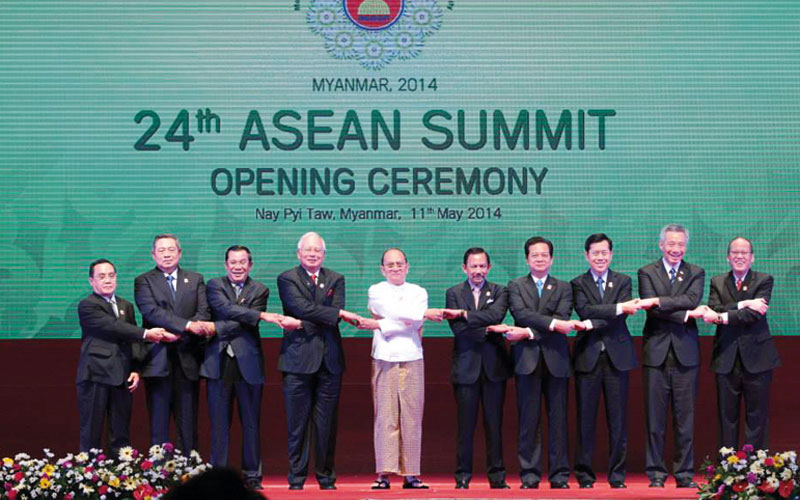Asean is playing a pivotal role in developing a centralized strategic position to maintain regional peace, stability and prosperity

Over the past four decades, Southeast Asia has evolved from an unstable region of wars, harsh dictatorships and poverty into a region admired for its prosperity, democratic aspirations and peace.
And as the Asia-Pacific grows in global importance, the countries of the Association of Southeast Asian Nations (Asean) will play an increasingly pivotal role in the world’s economic and strategic wellbeing.
The United States certainly understands this, and Washington is intensifying its efforts to ensure that the region realizes its potential through strengthening economic and defense ties.
“The United States is – always has been and always will be – a Pacific nation (and) we are working to create and open a transparent economic environment,” U.S. Commerce Secretary Penny Pritzker told business leaders on her recent Southeast Asian tour, her third as secretary in a year.
“The Asia-Pacific region has become a significant market for American products and services, and sales to and investments in the region by U.S. companies serve as the foundation for good jobs here and in the United States,” she said.
According to the U.S. Commerce Department, by 2022 the Asia-Pacific nations will be home to 54% of the world’s middle class and will import nearly $10 trillion worth of goods and services, nearly two-and-a-half times more than today. “The region will be an engine of global growth over the next decade which will have a profound impact on how – and where – the world does business,” Mrs. Pritzker said.
Washington is enthusiastic about the Asean Economic Community, or AEC, due to be up and running next year and is cheering on the free trade agreement from the sidelines. But the United States’ interest does not just involve economics, finance and trade.
By 2015, the region will also have plans in place to boost political and security cooperation in what Asean says will “ensure that countries in the region live in peace with one another and with the world in a just, democratic and harmonious environment.”
This is to be partly accomplished through the association’s Peacekeeping Centers Network that will strive to strengthen regional defense and security cooperation by facilitating collaboration in peacekeeping among members through joint planning and training.
Asean officials say this cooperation could mean its troops someday would together play a larger role in United Nations peacekeeping missions in the world’s hot spots, as soldiers from the association’s individual members do now.
The United States, with which many of the Asean countries have defense pacts of varying degrees, is fully supportive of these measures as it watches warily while China moves to play a wider role in the Pacific, long considered “an American lake”.
This interest was made clear when U.S. President Barack Obama announced his administration’s “Pivot to East Asia” policy two years ago designed to refocus Washington’s attention on the region as it began pulling back from the Middle East.
Mr. Obama himself underlined the importance of this strategy earlier this year when he visited two Asean members – Malaysia and the Philippines – and signed a new, 10-year defense cooperation agreement with the latter.
“I’ve made clear throughout this trip, the United States is renewing our leadership in the Asia-Pacific and our engagement is rooted in our alliances,” Mr. Obama said in a speech in the Philippines capital.
“As we strengthen our bilateral security cooperation, we’re also working together with regional institutions like Asean,” the President said, adding that Washington’s goal is to “promote a common set of rules, founded in respect for international law, that will help the Asia-Pacific remain open and inclusive as the region grows and develops.”
0 COMMENTS